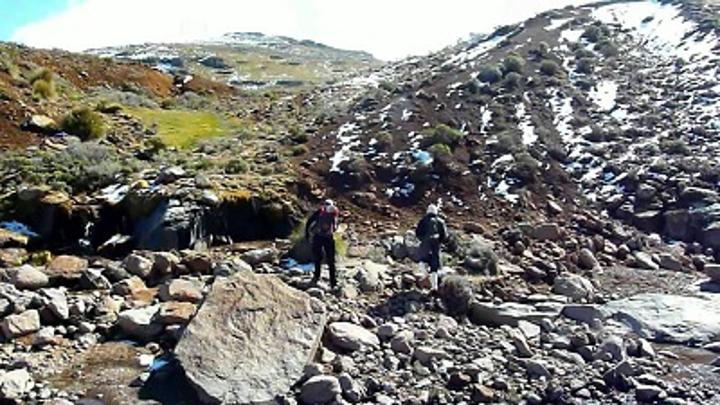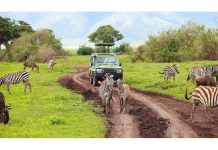Africa-Press – Lesotho. There’s so much to do in Lesotho that a quick weekend to The Kingdom in the Sky is not enough. The country’s like a massive playground with miles of gorgeous countryside to explore on foot
or bicycle and rivers to fish in, hills to ski down, ponies to ride and warm, wonderful people to meet. The popular Afriski Resort, the national parks and nature reserves as well as Katse Dam get a big chunk of everyone’s
attention but do try to fit in a few of Lesotho’s best-kept secrets. View all Lesotho Tours Thabana Ntlenyana means “beautiful little mountain”. It’s the highest point in Lesotho and the highest
mountain in southern Africa. Set off from Sani Mountain Lodge or Vergelegen Nature Reserve for a challenging but rewarding climb to the top. The God Help Me Pass is another
Mother of a mountain pass in western Lesotho. The road ascends steeply from the village of Setibing and near the summit is the popular Basotho Pony Trekking
Centre which offers a variety of trekking exhibitions. Semonkong, meaning ‘Place of Smoke’, boasts having one of Africa’s tallest single-drop waterfalls.
The area gets its name from Maletsunyane Waterfall which sends up a towering cloud of spray when the river is in full flow. The cascading water creates a
thunderous background noise to any picnic, claimed by local legend to be the “wailing cry of the souls of those who drowned there”. No experience is required to abseil off a small cliff close the waterfall because advance
pre-training is provided. Lesotho is regarded as one of the best trout fishing destinations in southern Africa and is heaven on earth for fly-fishing enthusiasts.
The extreme montane weather and excellent water quality create the perfect growing conditions for rainbow and brown trout as well as carp. You have unlimited kilometres of mountain streams all to yourself or you can fly
the rod at Katse Dam which is more accessible. Book an organised fishing tour with the professionals for the best fishing experience in Lesotho. The trout river fishing season in Lesotho is from 1 September to 31 May.
The best time to fly fish in Lesotho is from end September to end November and then again from March to May. Ts’ehlanyane National Park is a botanical treasure trove and home to one of the finest examples of Che-Che
woodlands and its rare undergrowth plants, unique to the forest habitat. On a guided nature walk through groves of Che-Che trees and Berg bamboo, keep your
eyes peeled for rare species of fern and mountain fynbos. Ts’ehlanyane is the local name for Berg bamboo which is an endemic plant species that has significant cultural
value to the Basotho people. On an informal road near Maseru, a discovery team has found massive footprints of a huge carnivorous dinosaur that roamed southern Africa over 200 million years ago.
Scientists believe the footprints found in Lesotho belong to a three-toed megatheropod that was about 9 metres in body length with a hip height of almost 3 metres.
Lesotho’s famous dinosaur has been named Kayentapus ambrokholohali. You might also like: Safaris to the Kruger National Park. Bokong National Park is characterised by massive rock outcrops so it makes sense that it’s also home to
one of the most significant rock art sites in southern Africa. The ancient Ha Baroana – meaning Home of Bushman – is a massive sandstone overhang on the
Liphiring River. Rock art at the site dates back to the foundation of the Sotho Kingdom in the early 19th century. The surviving wall paintings are quite faded but it’s worth a visit if
only to appreciate the history of the area. Another rock art site in Lesotho and but this one showcases some of the finest in the region. The cave is a large overhang in the Clarens sandstone and was originally used by the San
people and other Neolithic tribes. It contains important rock art and a rich archaeological deposit of Stone Age implements lies beneath the floor. King
Moshoeshoe the Great used the cave as a stopover on his royal trips. The Ha Kome cave homes a fascinating attraction in Lesotho’s Berea District. The deep caves are carved
directly form the rock faces of the surrounding mountains and are still inhabited by the descendants who lived in them over 200 years ago. Book a tour
of Ha Kome and learn more about the traditional way of life of the cave dwellers. Learn more about the people of Lesotho and the country’s rich cultural heritage on a tour of Morija Museum
and Archives, located a short drive from Meseru. Established in 1956, Morija Museum & Archives is home to a valuable collection of prehistorical items,
historical material and objects of ethnological interest as well as Basotho art. It also runs a range of arts and culture projects as well as heritage and community-based tourism initiatives. Visit Moafrikatours. com now for more info
For More News And Analysis About Lesotho Follow Africa-Press






